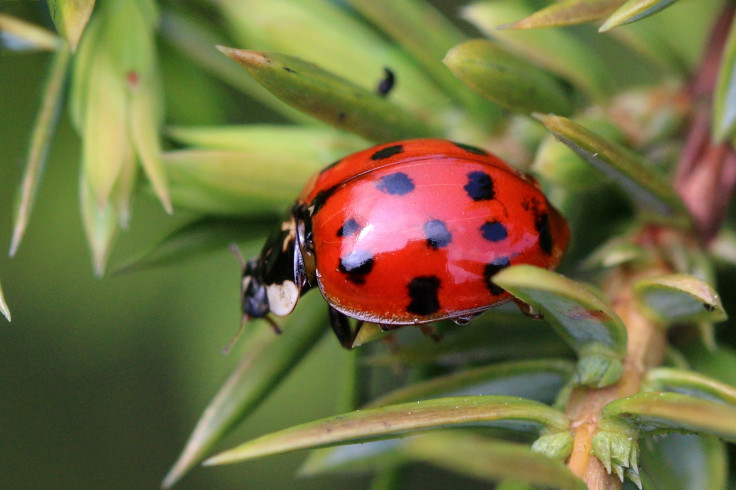Swarms of black-winged ladybirds are bringing STDs to the UK
Mild Autumn weather is contributing to the problem.

Millions of harlequin ladybirds from Asia and North America bring with them a sexually transmitted fungus that could infect our native species of coccinellid.
The interlopers pose a major threat to our homegrown bugs because they carry Laboulbeniales fungal disease.
The UK Ladybird Survey says it is possible that the disease affects the lifespan or the number of eggs a female can produce over her lifespan.
Harlequin ladybirds can also prove inconvenient house guests as they bed in for the winter.
According to the Buglife nature charity, although the harlequins are not a direct threat to humans, they can make an unpleasant smell and damage furniture.
"Large gatherings of them can give off a chemical smell and in centrally-heated houses they may be woken up from hibernation by the warmth and fly around the house," a spokesperson said.
Harlequin ladybirds are one of the largest ladybird species and has been observed eating other ladybirds and even attacking humans.
According to the Harlequin Ladybird Survey, the ladybirds can "exude a yellow fluid (called reflex blood) which has an unpleasant acrid smell, and which can stain soft furnishings.
"When hungry, harlequin ladybirds will bite humans in their search for something edible. Ladybirds in houses, woken from dormancy by central heating, may bite people as there is no food available.
"The bites usually produce a small bump and sting slightly. There are a few documented cases of people having a severe allergic reaction to harlequin ladybirds."
Professor Helen Roy, of the Centre for Ecology and Hydrology in Wallingford, Oxford, warned "These ladybirds also feed on grapes so they are often found in vineyards which, of course, becomes a problem for wine production."
Social media users have been recording sightings across the country:
#harlequinladybird in the news today.Treated an invasion in a retirement home this week. Have U been plagued while they look to overwinter?
— A12 Pest Management (@a12mole) October 29, 2016
#Harlequin #Ladybird in big numbers today #Belper #Derbyshire @DerbysWildlife with attendent #Blackheadedgulls pic.twitter.com/GrIMngWn0r
— Richard Taylor (@Mightychub) October 28, 2016
My first Harlequin Ladybird seen on the Peddars Way Anmer pic.twitter.com/zXStMDoUSl
— Bob Osborne (@BobOsborne4) October 27, 2016
According to the Manchester Evening News, swarms of the ladybirds have already been reported in "Cheadle, Wythenshawe, Sale, Stockport and the city centre, as well as other areas across Greater Manchester."
Steve McGrail, director of pest control company Pro Kill Environment, told the MEN that preventing the ladybirds getting inside your house is the best defence against infestation.
"They are a non-indigenious species. They are coming inside in large numbers," he said.
"They usually cluster around window frames and they cluster together to gather heat and hibernate in winter months."
© Copyright IBTimes 2025. All rights reserved.




















